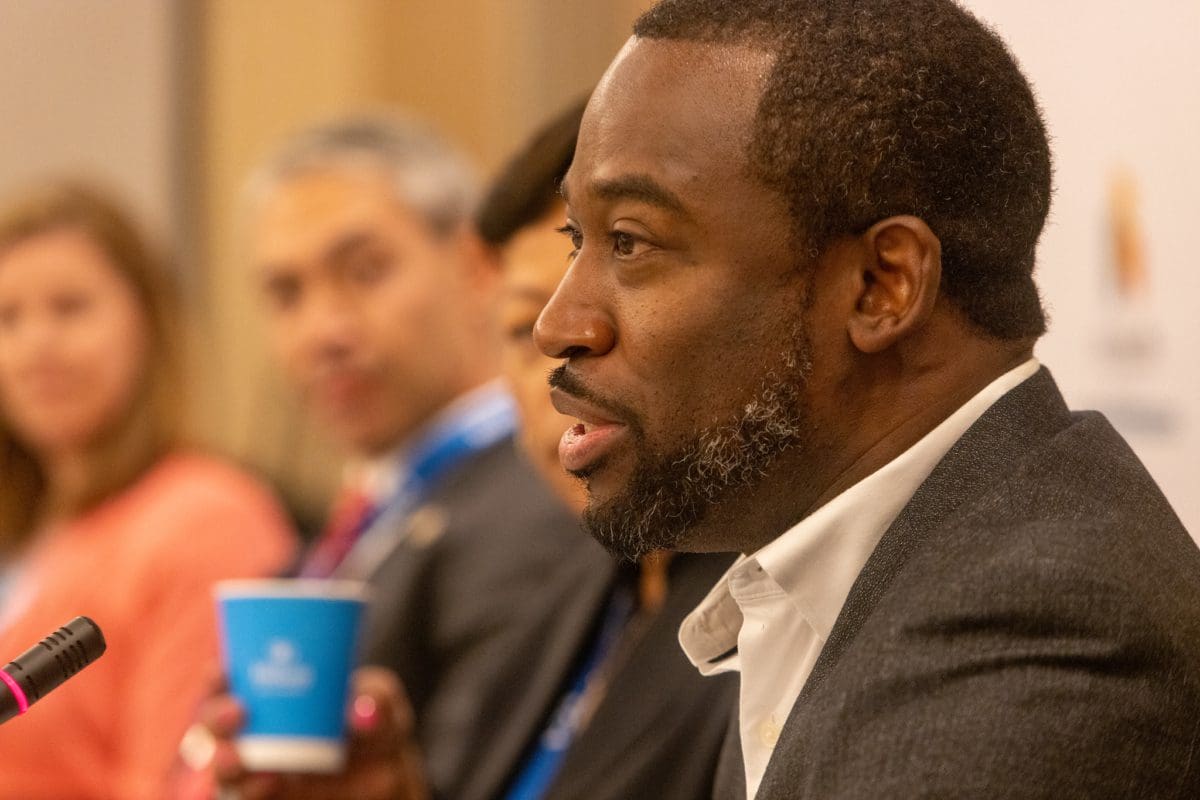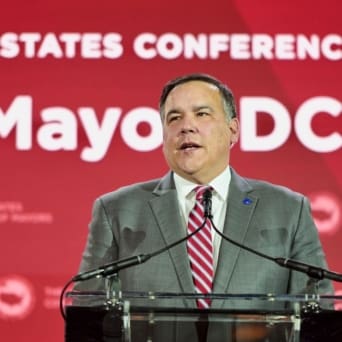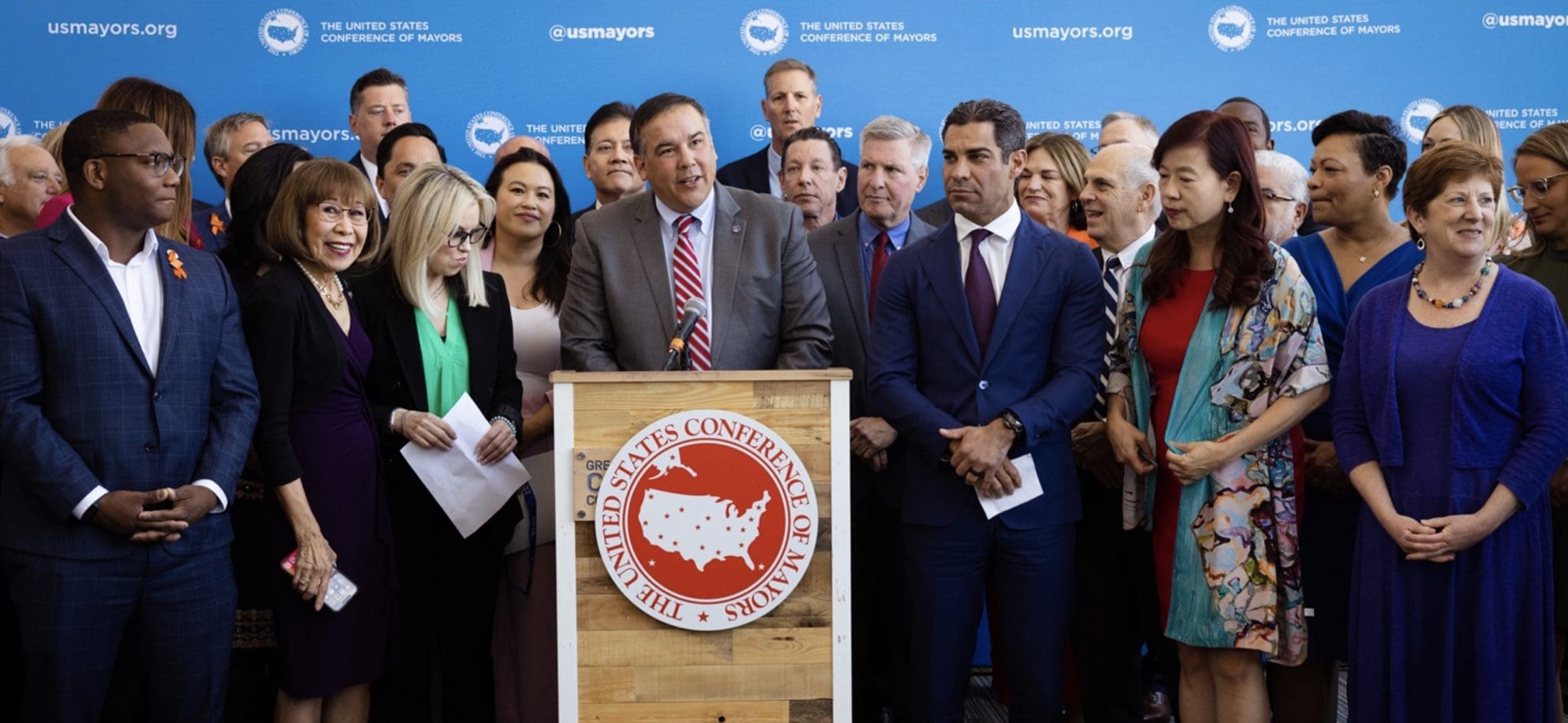
Columbus Mayor Andrew Ginther opens the U.S. Conference of Mayors 91st Annual Meeting at a press conference on June 2, 2023. (Photo by Allison Shelley/USCM)
During the first weekend in June, the Columbus, Ohio, convention center was buzzing with an eclectic mix of high school graduates, volleyball players, and hundreds of mayors from across the country. The mayors were attending the U.S. Conference of Mayors 91st Annual Meeting, an opportunity to connect with peers, liaise with business leaders, and amplify their work by speaking on panels and sharing policy ideas to improve lives for the residents they serve. Between meetings, mayors weaved among the convention center’s other guests in their caps and gowns and knee pads, a coincidental parade of the younger generation whom the mayors repeatedly named as inspiration.
The conference covered topics from housing affordability to electric vehicles, from gun violence to state preemption. No matter the size or political leanings of a city, each session held relevancy and cast a spotlight on the critical role mayors play when it comes to the health and well-being of their communities.
The conference agenda served as an important reminder of how intersectional health truly is. Amidst the other critical agenda items was a CityHealth-sponsored forum aptly named “The Power of Policy: A Health-Centric Approach to Governing.” The forum’s purpose was to elevate the voices of local leaders who have been intentional in prioritizing their governance through a health-focused lens. Mayor Levar Stoney of Richmond, Virginia, moderated the panel featuring Mayor LaToya Cantrell of New Orleans, Louisiana, Mayor Ron Nirenberg of San Antonio, Texas, Mayor Luke Bronin of Harford, Connecticut, and CityHealth’s Co-Executive Director Catherine Patterson. The conversation covered a lot of ground — only fitting for a discussion based on something as ubiquitous and broadly defined as health.
Each mayor began by describing recent policies they championed to improve health in their cities. Mayor Cantrell spoke about her effort to make New Orleans smoke-free and the importance of including the community when tackling contentious issues. When she led the charge to pass the smoke-free policy, Mayor Cantrell galvanized support from musicians and casino workers whose health and livelihoods were affected by smoke-filled workplaces, and she spoke honestly and directly with the business community that was concerned about the change. She also spoke compellingly about the role of policy in shifting culture, providing an anecdote about her mother, a lifelong smoker and an early skeptic of the smoke-free policy. “When New Orleans went smoke-free”, Mayor Cantrell said, “my mother went smoke-free too.”
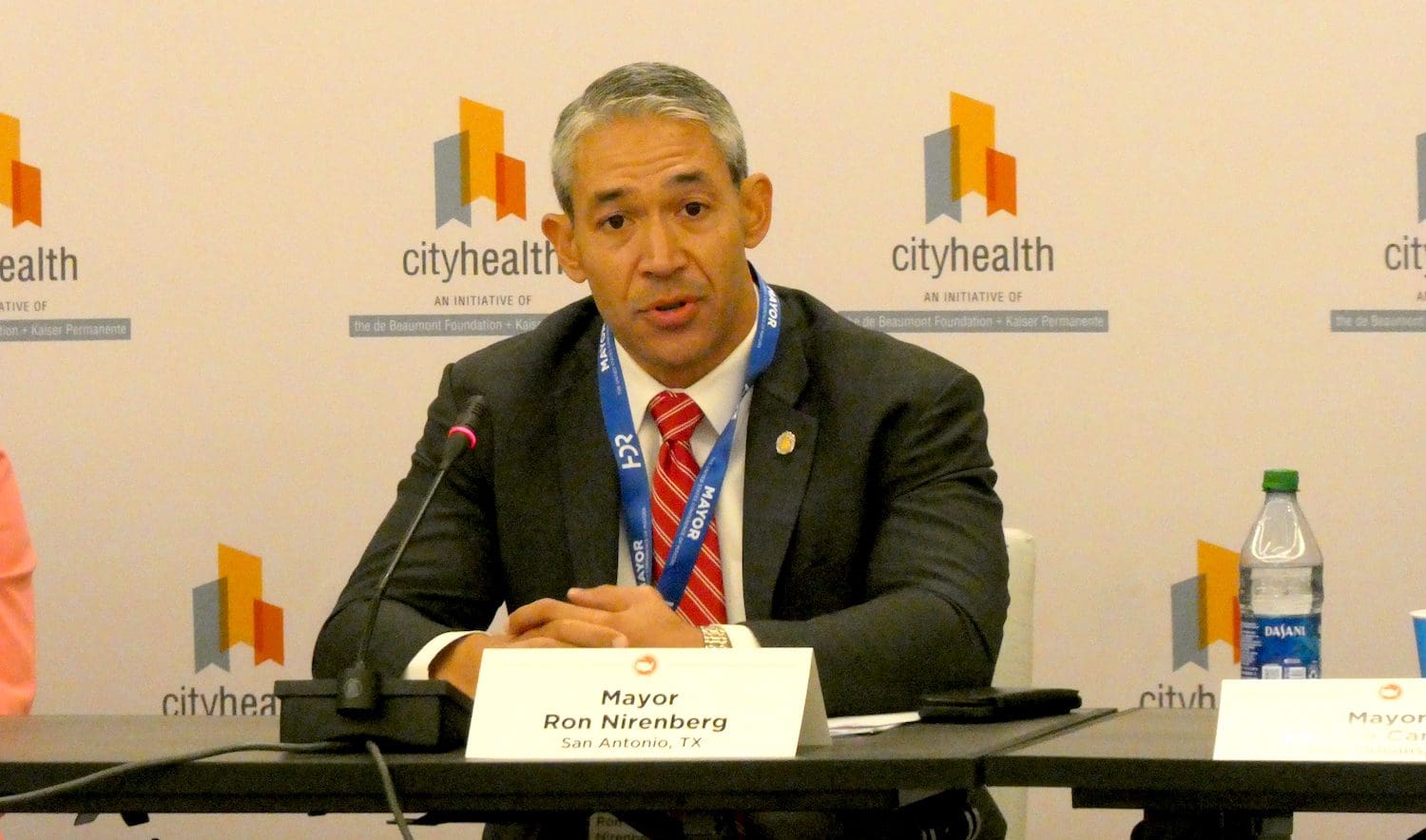
Mayor Ron Nirenberg. (Photo by Tom Martin/CityHealth.)
Mayor Nirenberg highlighted San Antonio’s high-quality pre-K program, emphasizing that focusing on community health requires a comprehensive approach. San Antonio first prioritized quality pre-K as part of a citywide anti-poverty push and set a goal of improving reading rates. A study of the city’s program, Pre-K for SA, found that students performed better on standardized tests and that the program resulted in a significant return on investment for taxpayers. Like Mayor Cantrell, Mayor Nirenberg also referenced a culture shift. When the sales tax to fund the pre-K program was first proposed in 2012, it passed by a “razor thin” margin; when it was up for renewal in 2020, it passed by over 70%.
In Hartford, Mayor Bronin is focused on environmental factors that can have a profound impact on health, including access to parks, tree canopy, and safe housing. He described Hartford’s lead removal program and proactive rental licensing program, both aimed not only at identifying unsafe housing, but also improving those conditions rather than removing housing from an already depleted market. Since these programs have been put in place, hospitals in the city have reported fewer emergency department visits for children related to asthma and lead poisoning.
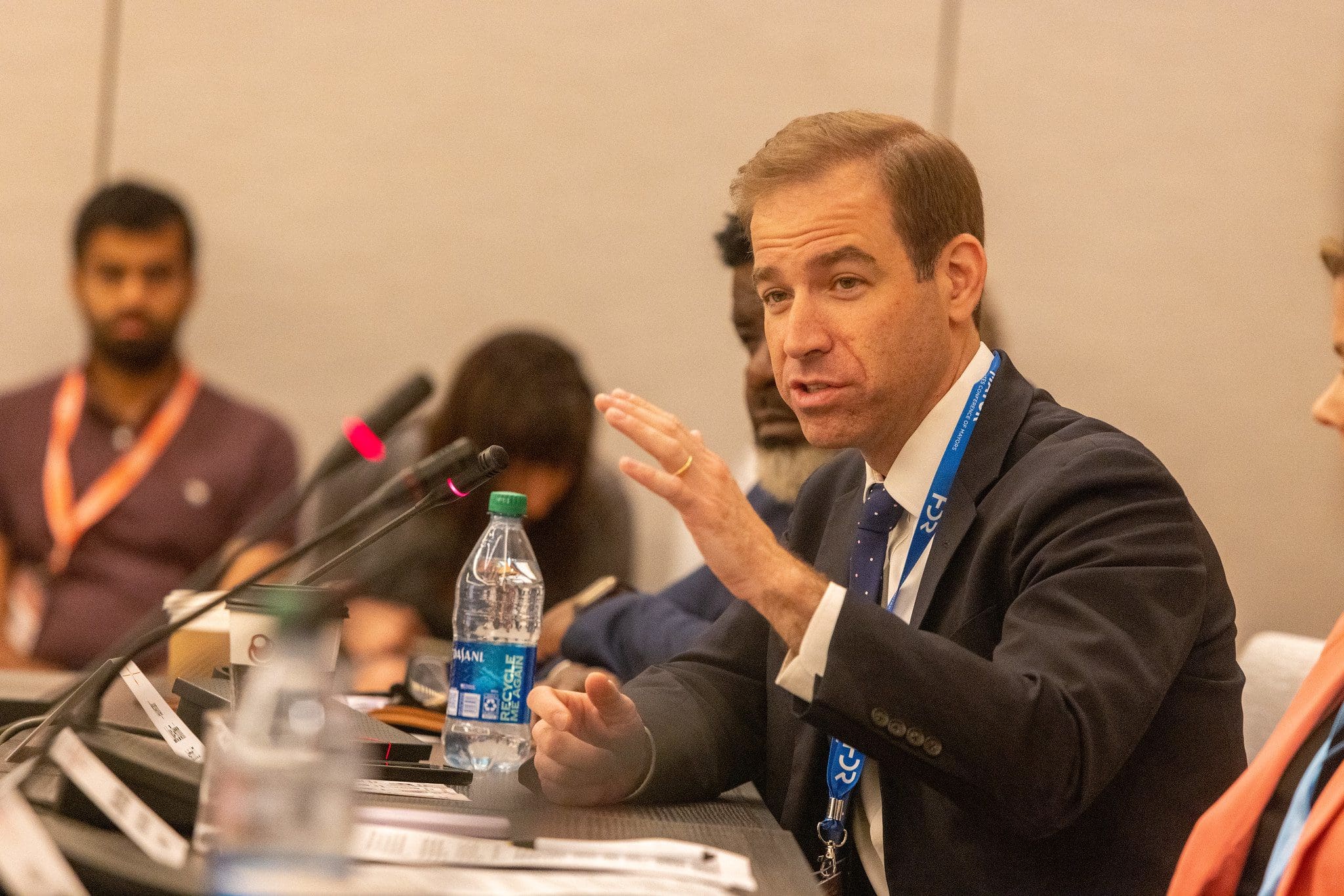
Mayor Luke Bronin. (Photo by Joshua Cogan/USCM)
As the panel continued and opened for Q&A discussion, the conversation remained focused, perhaps unsurprisingly, on housing. Housing is a top issue for nearly every city right now, in terms of both quality and affordability. Proactive rental inspection programs and rental registry systems were two common policies discussed. Both Mayor Bronin and Mayor Cantrell spoke about their respective city’s right to counsel program for people facing eviction, which Mayor Cantrell described as “the right thing to do” and “dignifying” for tenants.
The relevancy of such a wide array of policies perfectly illustrates CityHealth’s broad view of health, Catherine pointed out. Some policies like New Orleans’ smoke-free indoor air or Columbus’ recent flavored tobacco ban will yield immediate health benefits. Others, like San Antonio’s pre-K program or Kansas City’s recent investment in parks and Greenspace, will see results many years down the line. Housing policies often do both. Part of governing through health is championing policies for generations to enjoy long after a new administration takes over. “Ultimately, the business we are all in,” Catherine said, “is leaving a legacy.”
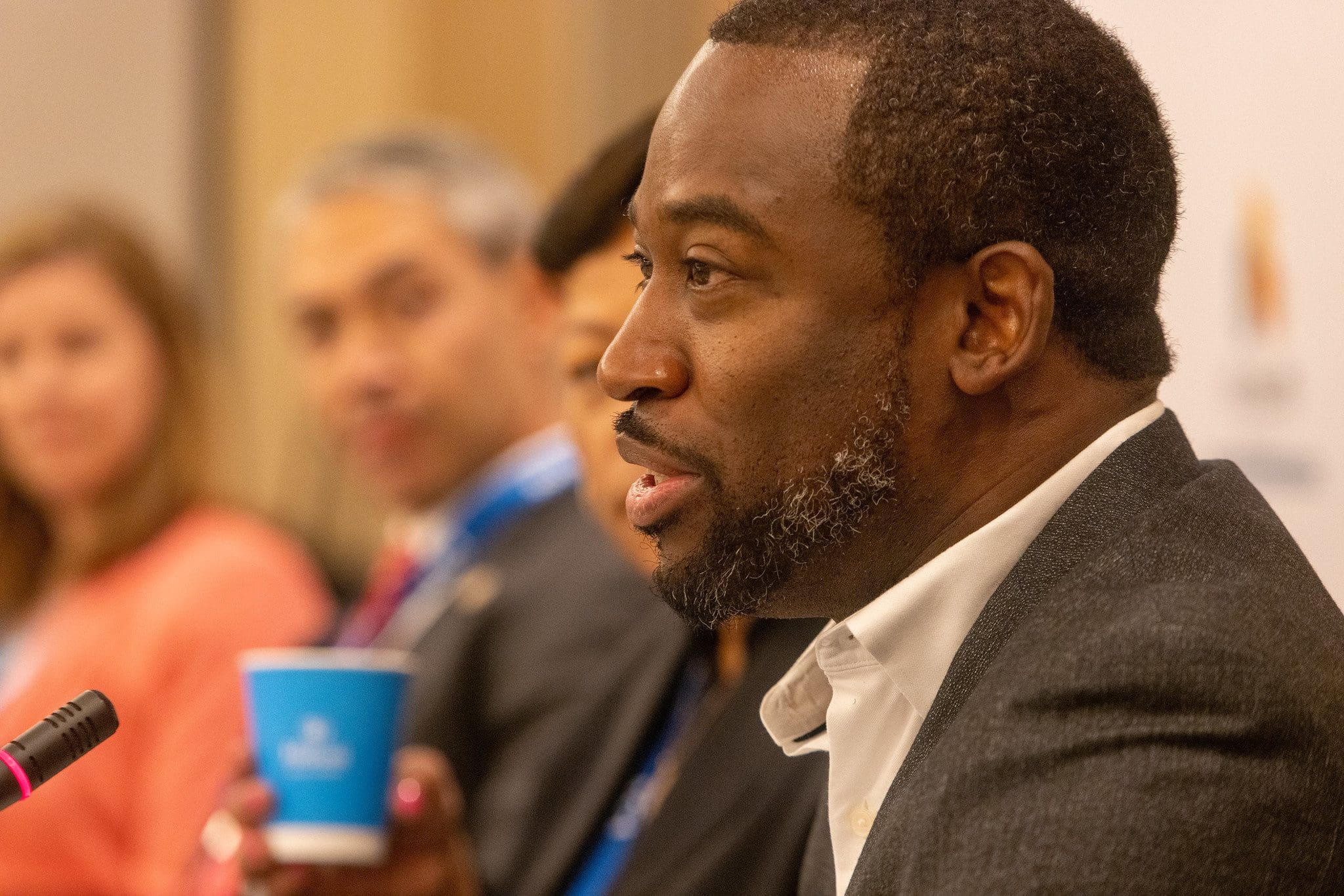
Mayor Levar Stoney. (Photo by Joshua Cogan/USCM)
Building a legacy on health, particularly in the wake of the pandemic, is clearly important to each mayor. The pandemic harshly illuminated existing health inequities, and mayors are now tasked with improving quality of life. Mayor Stoney argued that mayors should be assessed on whether they have “changed the life expectancy of a young Black boy in their city”, while Mayors Bronin and Nirenberg connected their housing and education priorities to the crucially formative first few years of a child’s life. And despite the challenges of tackling root causes of health from far upstream, Mayor Cantrell spoke about trusting people to change behavior when given the tools to connect the dots between their environment and their health. “We’ve seen this movie before,” Mayor Cantrell said. “We know better. We’ll do better.”
Though each mayor described distinct policy pursuits, common themes were easily identified. The influence of policy, the need to center equity, and the importance of cross-sector collaboration were mentioned frequently as crucial to the mayors’ successes. Mayors Cantrell, Nirenberg, Bronin, and Stoney are leaders in health-centric governing, but they are in good company as more and more mayors across the country tackle similar policy solutions. The regional and population size diversity of the cities represented on the panel and in the audience serves as a reminder that governing through health is possible for any city leader. CityHealth is ready to work with mayors and city leaders who share our goal of using policy to shape a healthier future. As Mayor Stoney said, “leading with health can be transformational.”
Kate Conquest is CityHealth’s Senior Program Associate

